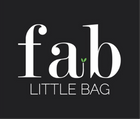
2.5 Million Tampons and 1.4 Million Pads Are Flushed in the UK Every Day: The Impact and How We Can Do Better
Every day in the UK, 2.5 million tampons and 1.4 million pads are flushed down toilets. This staggering statistic reveals a widespread habit with serious consequences for our environment, plumbing systems, and public waterways.
Despite growing awareness of sustainability and proper waste disposal, the flushing of period products remains a critical issue that requires immediate attention.
Let’s dive into the impact of this problem and explore how small, responsible changes can make a big difference.
Why Are Period Products Flushed?
For many, flushing period products might seem like the easiest, most discreet option. Public restrooms often lack proper disposal facilities, and embarrassment about handling used products can lead to a quick flush. Others simply don’t realise the impact of this habit, assuming that tampons and pads break down like toilet paper.
The truth? They don’t. Period products are designed to absorb, not disintegrate, making them one of the leading causes of sewage blockages and environmental pollution.
The Environmental Consequences
Flushed period products often don’t stay in sewage systems. Many make their way into rivers, seas, and oceans, where they contribute to marine pollution and harm aquatic ecosystems.
- Microplastic Pollution: Many pads and tampons contain synthetic materials like plastic that break down into microplastics. These tiny particles are ingested by marine life, entering the food chain and affecting biodiversity.
- Marine Life Threats: Flushed tampons and pads can entangle marine animals or be mistaken for food, leading to injury or death.
- Visual Pollution: Walk along any beach, and you might see evidence of flushed waste washing up on the shore—an avoidable eyesore caused by improper disposal.
Plumbing and Infrastructure Issues
Beyond the environmental impact, flushing period products also wreaks havoc on plumbing systems:
- Sewage Blockages: Tampons and pads don’t break down in water, leading to blockages in pipes and sewer systems. These blockages are costly to fix and contribute to larger public issues like fatbergs (massive blockages of grease and non-biodegradable waste).
- Increased Maintenance Costs: Clearing sewage systems of flushed period products places a financial burden on utilities and taxpayers.
A Better Way: Bin, Don’t Flush
The good news? This problem is entirely preventable. Proper disposal of period products in a bin, rather than flushing, can significantly reduce the environmental and infrastructural damage.
Enter FabLittleBag:
FabLittleBag offers a simple, hygienic, and eco-friendly period disposal solution for period products. Designed for convenience, FabLittleBag is a discreet bag that seals securely, preventing leaks and odours. Made from sustainable materials, it’s the perfect alternative to flushing.
With FabLittleBag, disposing of tampons, pads, or panty liners is easy—whether you’re at home, work, or on the go. By using a product like this, you can help protect plumbing systems and keep our waterways free from waste.
How to Change the Habit
Breaking the flushing habit starts with awareness and education. Here’s how you can contribute to the solution:
-
Know the Facts: Share statistics like the 2.5 million tampons and 1.4 million pads flushed daily in the UK to raise awareness about the issue.
-
Lead by Example: Use and promote responsible disposal methods like FabLittleBag. Keep a small stash of disposal bags handy for use at home or on the go.
-
Encourage Proper Facilities: Advocate for businesses and public spaces to provide period bins in all restrooms. Lack of disposal options is one of the leading reasons people flush period products.
-
Educate the Next Generation: Teach children and teens about proper disposal habits as part of period education. The earlier we start, the better.
Making a Positive Impact
By binning instead of flushing, we can collectively reduce the environmental and infrastructural harm caused by period products. Small steps, like using sustainable disposal solutions or encouraging proper waste management practices, can lead to significant improvements for our waterways, wildlife, and plumbing systems.
FabLittleBag is proud to be part of this movement, providing a practical and sustainable solution to this widespread issue. Together, we can shift habits, protect our environment, and create a cleaner, greener future.
Final Thoughts
The statistics may seem overwhelming, but every individual action counts. Start by rethinking how you dispose of period products. By binning instead of flushing—and encouraging others to do the same—you’re contributing to a healthier environment and a more sustainable way of managing waste. With solutions like FabLittleBag, making the switch has never been easier.
Let’s bin the flushing habit for good and make a positive impact today.
